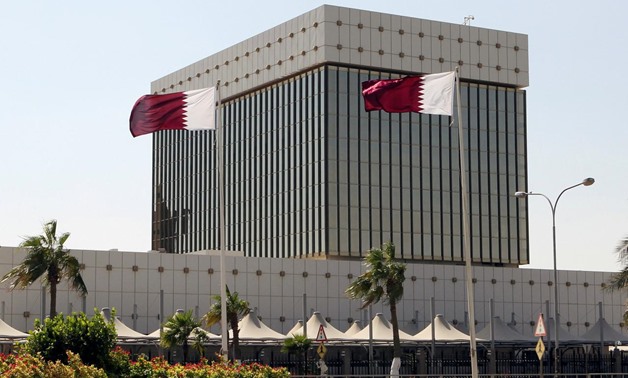
FILE PHOTO - Qatar's Central Bank is seen in Doha in this general view taken November 9, 2011. REUTERS/Mohammed Dabbous/File Photo. “
DUBAI - 14 May 2018: Qatar’s central bank is seeking more data from banks about U.S. dollar-riyal trades as it investigates suspected attempts to devalue its currency at the height of a diplomatic standoff with some other Gulf states, sources familiar with the matter said.
Qatar keeps its riyal pegged at a fixed rate to the dollar like most of its Gulf neighbours. But after Saudi Arabia, the UAE, Bahrain and Egypt accused it of backing terrorism and imposed an economic boycott on it last June, Qatar has seen the riyal trade several percent weaker than its pegged rate of 3.64 per dollar in offshore markets.
The central bank said in December it was investigating attempts by countries opposed to it to harm the Qatari economy by manipulating the currency, securities and derivatives markets.
In the last few weeks, the central bank has sent requests to financial institutions operating in Qatar for details of any banks taking arbitrage trades on spreads between the offshore and onshore rates, according to three sources who have seen the requests.
It is also asking for details of dollar/riyal swap positions and current accounts of foreign banks in the country as well as foreign exchange rates used for transactions on these accounts, they said.
It is trying to ascertain whether any banks were involved in trades that pushed the value of the local currency weaker than a range of 3.64-3.65 against the dollar, the sources added.
Qatar’s central bank did not immediately respond to a Reuters request for comment.
In March, Reuters reported that Qatar asked U.S. regulators to investigate the U.S. unit of First Abu Dhabi Bank (FAB) , the largest bank in the United Arab Emirates (UAE), accusing it of “bogus” foreign exchange deals designed to harm the economy.
FAB, parent of the U.S. subsidiary NBAD Americans, denied the charge..
Some foreign banks operating in Qatar are concerned about the requests for data from the central bank.
“This is the central bank trying to audit FX operations,” an international banker told Reuters. “We have nothing to hide, but this is a sensitive political issue.”
Foreign banks including Standard Chartered, HSBC, BNP Paribas, Arab Bank, Dubai’s Mashreq and Iran’s Bank Saderat are licensed to operate in Qatar, according to data on the central bank’s website. A further 11 local banks are also licensed.
A second banker said the purpose of the exercise was to determine whether any banks took advantage of the spread between the onshore and offshore markets at the height of the diplomatic dispute, when the Qatari currency had weakened offshore.
The vast majority of currency activity occurs in the onshore market, where the currency has stayed near its peg of 3.64 to the dollar. But in the offshore market it has weakened as far as 3.8950 on one point last November.
A senior banker at a Qatar-based bank said the central bank had asked them if they had entered into any arbitrage positions or swaps with counterparties in the UAE.
The bank said it didn’t and “it was left at that,” the banker said.
Many bankers in the region say that with more than $300 billion in central bank reserves and sovereign wealth fund assets, Qatar has more than enough financial firepower to block any attack on its currency.
Qatar’s state companies, including its sovereign wealth fund, injected $43 billion into the banking system last year to mitigate the outflow of non-resident funding from Qatar’s banks of around $22 billion.
Qatar’s central bank has hired New York law firm Paul, Weiss, Rifkind, Wharton & Garrison to lead its investigation.


Comments
Leave a Comment